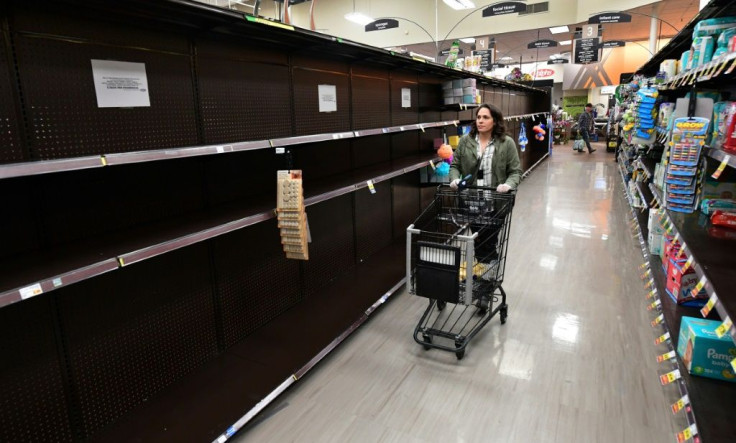Terrible Or Merely Bad? Investors Brace For Ugly Q1 Earnings

The month of March opened with US unemployment near a 50-year low and concluded with countless companies turning to Washington for help as the coronavirus ravaged the economy.
Quarterly earnings season -- which kicks off this week with reports from major banks -- will provide the first full accounting of how the COVID-19 crisis affects corporate America.
While the reports will no doubt be weak, it is difficult to know exactly how bad the first-quarter results will be because the first two months of the year saw fairly strong economic activity that was halted in sudden and dramatic fashion in March as governments imposed lockdown orders to halt the spread of the virus.
Analysts expect companies in the S&P 500 to report a drop in profits ranging from six to 15 percent. The outlook is much worse for the second quarter, when the decline is expected to be at least 18 percent.
Adding to the uncertainty: numerous companies have withdrawn their earnings forecasts amid the fog over how long much of the US economy will remain in a state of suspended animation.
Over the course of March, the US economy sustained an almost unimaginable series of blows.
More than 10 million people were suddenly put out of work, major auto plants closed down, thousands of small businesses shuttered as did restaurants, malls and movie theaters, major sporting events were canceled or postponed and thousands of commercial flights were axed or flew with fewer than 25 percent of the seats filled.
Through this period, the S&P 500 shed more than $3 trillion in market capitalization.
The pandemic has killed thousands, rendered major cities ghost towns and scattered workforces, with executives suddenly managing employees who are sheltering in place at home.

In the wake of the remarkable halt to business, American, Delta, United and other airlines have sought massive public support, along with myriad hospitality industry companies, while Boeing has encouraged workers to apply for unemployment benefits.
Washington has responded forcefully, with Congress enacting unprecedented fiscal stimulus and the Federal Reserve introducing a host of new programs to boost market liquidity and the real economy.
"Visibility is extremely limited at this time," said Francois Trahan, a strategist at UBS, expressing a sentiment shared by other market watchers who are hesitant to predict when profits might rebound.
"While the willingness of policymakers to use all the tools at their disposal is clear, only time will tell to what extent the actions succeed in limiting defaults, closures and layoffs," Goldman Sachs said in a note.
The first big day for earnings will be Tuesday with reports from large banks, always a key proxy for the US economy and an especially central industry now because of the vital role they play in key federal stimulus programs.
The bank results will speak to the hit on households, specifically how much customers are struggling with credit card and auto loan payments, as well as the stress facing businesses of all sizes.
On a conference call with analysts, bankers will no doubt also be queried on the effectiveness of the Fed's barrage of relief programs, as well as the impact of massive fiscal stimulus.
In subsequent weeks, investors will hear from a broader set of companies, including hotels, retailers and cruise and entertainment companies that have seen some of the most devastating effects from shutdowns.
There is also a smaller list of companies that have seen business soar amid the coronavirus crisis. These include big box companies with grocery divisions such as Walmart and Costco, e-commerce giant Amazon and the makers of suddenly in-demand household products such as toilet paper, canned soup and hand sanitizer.
Earnings season continues through mid-May.
© Copyright AFP 2024. All rights reserved.





















